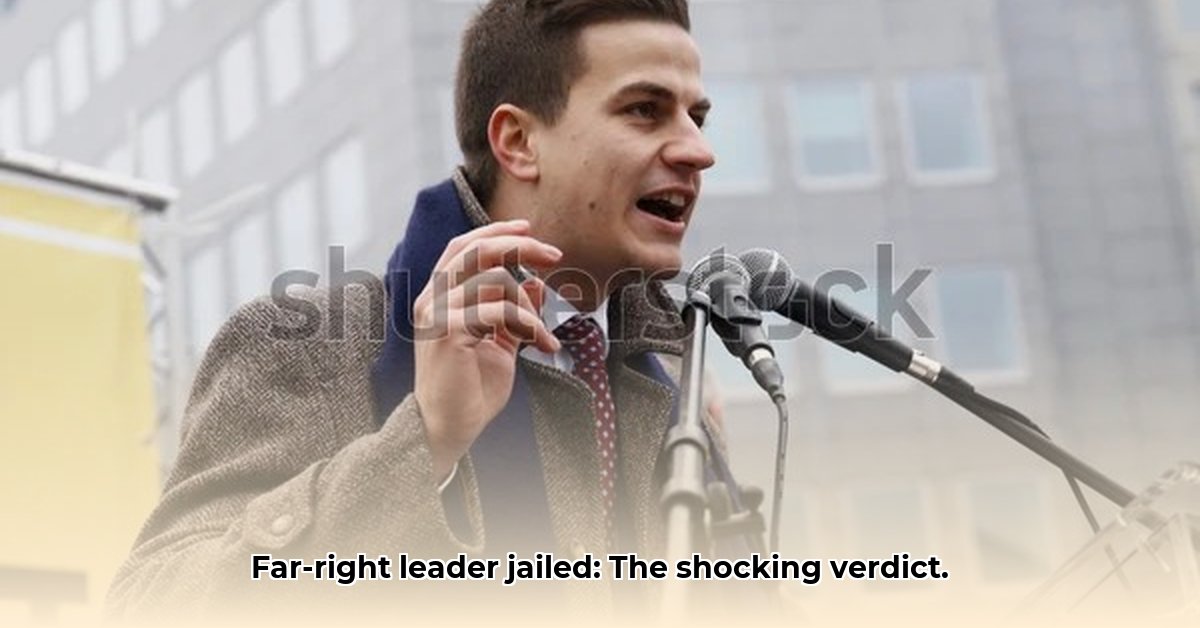
Dries Van Langenhove: A Verdict and its Wider Implications
The recent jailing of Dries Van Langenhove, former leader of the Belgian far-right group Schild & Vrienden (Shield & Friends), marks a significant moment in the fight against extremism. His conviction, including a ten-year ban from public office, highlights the challenges of combating online hate speech and its real-world consequences. This case isn't merely about one individual; it underscores broader societal concerns regarding online radicalisation and the limitations of existing legal frameworks.
Understanding Dries Van Langenhove and Schild & Vrienden
Van Langenhove's rise to prominence was intertwined with Schild & Vrienden, a far-right group notorious for its online presence. The group leveraged social media platforms like Facebook and Twitter to disseminate hateful rhetoric, recruit members, and foster a sense of community among like-minded individuals. Their ability to spread inflammatory messages effectively demonstrates the power of online radicalization and the challenges faced in countering such narratives. How effective are current strategies in mitigating online hate speech's reach and influence?
The Trial: A Battle of Freedoms
Van Langenhove's trial saw a clash between freedom of speech and the dangers of incitement to violence and hatred. The prosecution presented substantial evidence, including online posts advocating violence against specific groups. The defence argued that the content was satirical or taken out of context, falling under the umbrella of free speech. The court, however, found Van Langenhove guilty of inciting violence, recognising the potential for his words to cause real-world harm. This ruling raises important questions about the boundaries of free speech in the digital age and the need for effective legal frameworks to address online hate. What constitutes incitement to violence online, and how can these lines be clearly defined in law?
The Verdict's Ripple Effect: Legal and Political Ramifications
Van Langenhove's conviction has sparked significant debate, particularly concerning the responsibilities of social media companies in moderating content. The case puts pressure on legislators to strengthen existing laws and develop new approaches to combat online extremism. It also has international implications, prompting discussions in other countries grappling with similar challenges. How can international cooperation be improved to address the transnational nature of online extremist networks?
The Path Forward: Combating Online Extremism
Several key challenges and opportunities arise from this case. Firstly, robust legislation addressing the nuances of online hate speech is crucial. Secondly, social media companies need to adopt more effective content moderation strategies, potentially through AI-powered tools. Thirdly, enhanced media literacy and critical thinking skills are necessary to counter manipulative online propaganda. Finally, promoting open dialogue and fostering counter-narratives to extremist ideologies are vital. This multifaceted approach requires collaboration among governments, tech companies, and civil society organisations. How can these diverse stakeholders best collaborate to address this complex problem?
A Collaborative Response: Shared Responsibility
Addressing the spread of online extremism demands a shared commitment.
| Stakeholder | Immediate Actions | Long-Term Goals |
|---|---|---|
| Belgian Government | Strengthen hate speech legislation; enhance online surveillance and investigation | Develop comprehensive counter-extremism strategies; fund community initiatives and education |
| Social Media Companies | Improve content moderation; increase transparency and accountability | Invest in AI-powered hate speech detection; strengthen collaboration with law enforcement |
| Civil Society Organisations | Monitor far-right activity; support victims; educate the public | Develop counter-narratives; promote tolerance and inclusion; fund research into extremism |
| Educational Institutions | Integrate media literacy into curricula; train educators | Develop specialized training programs for educators on countering extremism |
The Van Langenhove case serves as a critical juncture, highlighting the need for a collaborative and proactive response to combat the spread of online hate and extremism. The future hinges on our collective action.